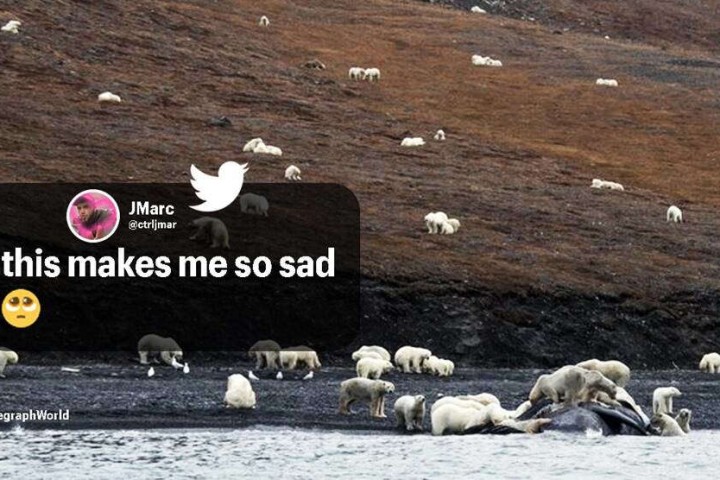Climate change forces polar bears to migrate to Russia from Alaska

One of the many signs of global warming is the change in animal population and habitation. Something similar is being witnessed with the polar bear population of Alaska that is rapidly dwindling.
It is reported that between 2001 to 2010, there was a 40 per cent drop in Alaska’s polar bear population. This drop is being credited to polar bears’ migration to Russia from Alaska due to rising temperatures in Alaska. In the last 50 years, there was a 4.8-degree Celsius rise in Alaska’s annual average temperature. This rise has resulted in the loss of sea ice that directly affects the bears by redistricting their hunting ground. The migration has resulted in a booming increase in polar bear numbers in Russia’s Wrangel Island.
This news simmered serious debate on climate change on social media, with many people raising concerns on the climate crisis while some refuting it.
pay attention to the bears. They’re telling us something! https://t.co/IdnjIp1np0
— maryjean (@xomaryjeanxo) January 2, 2022
Human activity creates global warming, in which produces habitat fragmentation, equals species extinction!!
— Anthony Wilson (@EcoYesNow) January 2, 2022
unfortunately they evolved to live on sea ice, and the further they move south the more difficult it is to find food and survive on land. their future is unclear … hybridization/change of diet may play out but who knows!
— babyriv (@dietnarcolepsy) January 2, 2022
Heartbreaking 💔 Nature is protecting itself. Years of human idiocy led to this #ClimateCrisis worldwide!!
— Johny_BlueWave 🌊😷❄️☮️💙Resisting in #PA 🔔🗽🇺🇸 (@Johny_GT) January 2, 2022
It's -26 C here today. Where can I order some climate change to make it warmer in my area? p.s. don't tell the bears the temp here because I don't want them here. Thx🤗🤗🤗
— Prisonplanet99 (@prisonplanet99) January 2, 2022
Its been damn cold in Canada. Record low temperatures. Stop the BS.
— dobbs (@dobbs_ddobell1) January 2, 2022
This is not the first time polar bears were seen migrating to colder places. In 2019, around 60 polar bears were spotted in one of Russia’s remotest regions of Ryrkaypiy.

